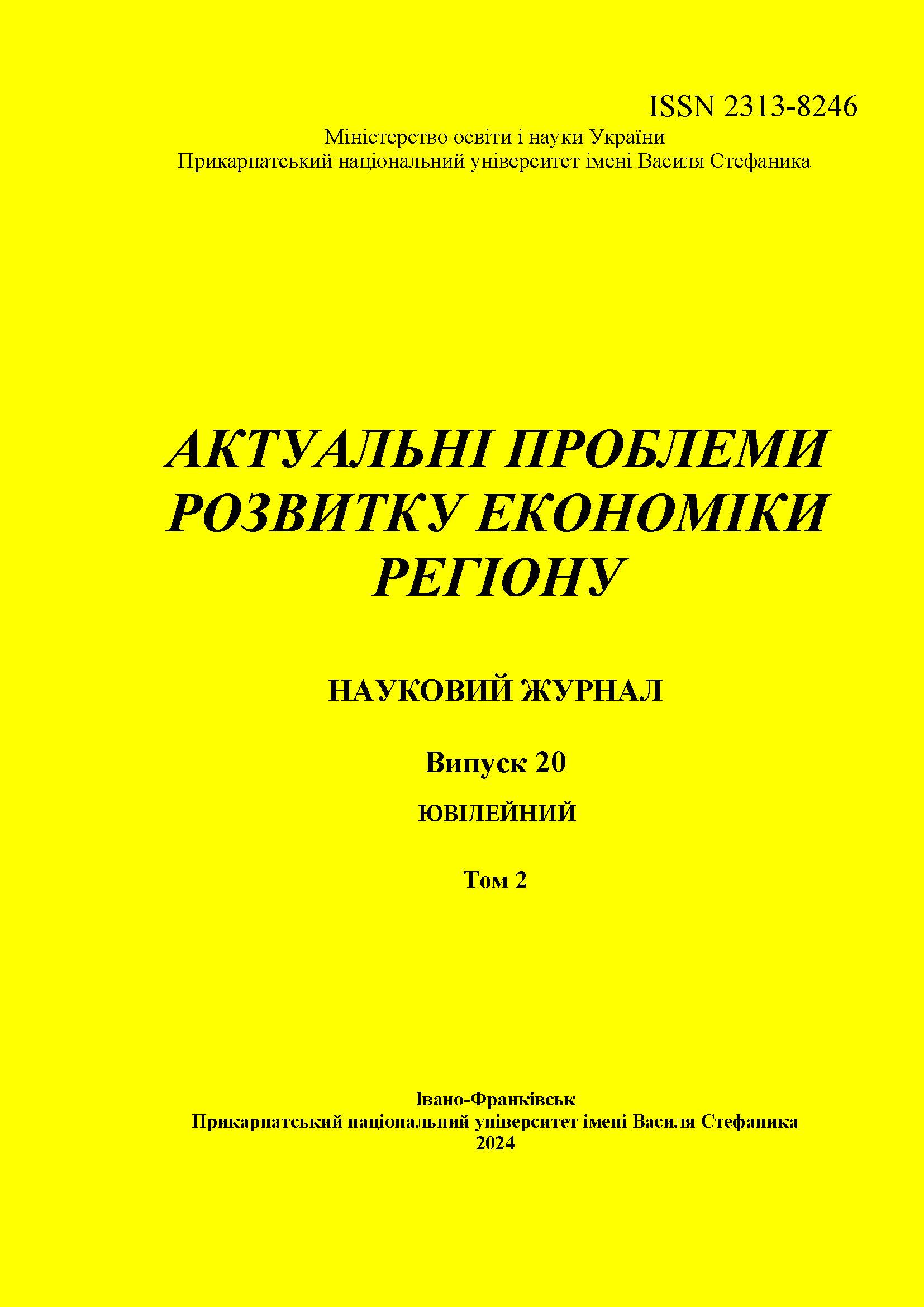TRANSFORMATION OF THE ACCOUNTING AND REPORTING SYSTEM IN THE CONDITIONS OF BUSINESS DIGITIZATION
DOI:
https://doi.org/10.15330/apred.2.20.370-379Keywords:
Digitization, accounting, reporting, accounting tasks, innovative technologies, business processesAbstract
The accounting and reporting system undergoes significant transformation in companies, where digital technologies influence approaches to data collection, processing, storage, and utilization. These changes are viewed positively for accounting as there's a gradual and irreversible shift from traditional accounting procedures to implementing progressive and efficient accounting systems. Utilizing digital innovations, modern accounting systems are poised to evolve into effective strategic management tools to support decision-making.
The aim of this research is to supplement the theoretical and organizational foundations of the accounting and reporting system by revealing the characteristics of accounting tasks and procedures under the influence of advanced digital technologies. It is established that the application of digital technologies leads to the transformation of the accounting and reporting system both theoretically and practically. From a theoretical perspective, digital technologies in accounting give rise to the introduction of new terminology and processes, expand the boundaries of accounting observation, and increase the range of its potential objects. Under such conditions, accounting gradually transitions to a new level of accounting and analytical support, enhancing the quality of business management information. On the practical side, the evidence base for the transformation of the accounting and reporting system includes freeing up the accountant's working time from routine procedures, transitioning to a convenient non-standard schedule of remote work, and increasing the significance of accounting professionals in developing and making management decisions. This empowers accountants to actively participate in interpreting accounting data, conducting analysis of cause-and-effect relationships, and optimizing business processes within the enterprise.
The obtained scientific results will contribute to the development of the theoretical and methodological basis of the accounting and reporting system in the conditions of further digitalization of socio-economic relations, aiming to explore expanded possibilities of accounting and analytical support and strengthening its significance in business management.
References
Appelbaum, D., Kogan, A., Vasarhelyi, M., and Z. Yan. “Impact of business analytics and enterprise systems on managerial accounting.” International journal of accounting information systems, 2017, no.25, рр. 29-44.
Grabski, S., Leech, S., and A. Sangster. Management accounting in enterprise resource planning systems. 2009. Butterworth-Heinemann.
Scapens, R., and M. Jazayeri.” ERP systems and management accounting change: opportunities or impacts? A research note.” Eur. Account. Rev., 2003, no.12(1), рр. 201-233.
Shkromyda, V., Gnatiuk, T., and N. Shkromyda. “Evaluation of Indexes of Dynamism of Corporate Reputation in Conditions of Behavioral Economy.” Corporate Reputation Review, 2022, no.25 (2), рр. 81-93, https://doi.org/10. 1057/s41299-021-00113-9.
Bezruchuk, S.L., and I.L. Grabchuk. “The main concepts of the influence of digitalization on the quality of accounting.” Economy, management and administration, 2021, no.4(98), рр. 69-74, https://doi.org/10.26642/ema-2021-4(98)-69-74
Bilous, O.S., and O.M. Kundeus. “Transformation of accounting in the digital economy.” Galician Economic Bulletin, 2023, no.83(4), рр. 56-61.
Brukhanskyi, R., and I. Splinnyk. “Digital accounting: concepts, origins and current discourse.” Institute of accounting, control and analysis in the conditions of globalization, 2020, no.3-4. рр. 7-20.
Horodyskyi, M.P., Zakharov, D.M., and I.V. Orlov. “The impact of COVID-19 on the transformation of the economy and accounting.” Problems of the theory and methodology of accounting, control and analysis, 2021, no.3(47), рр. 14-22, https://doi.org/10.26642/pbo-2020-3(47)-14-22.
About accounting and financial reporting in Ukraine. Law of Ukraine. Verkhovna Rada of Ukraine, zakon.rada.gov.ua/laws/show/996-14#Text. Accessed 08 May 2024.
Kancedal, N.A. “Accounting in the digital age: expanding terminological boundaries.” Accounting and finance, 2019, no.1(83), рр. 28-34, https://doi.org/10.33146/2307-9878-2019-1(83)-28-34
Kononenko, L.V., Nazarova, G.B., and V.I. Kuts. “Transformation of forms of accounting in the conditions of development of digital technologies.” Economic space, 2021, no.168, рр. 132-137.
Legenchuk, S.F., Horodyskyi, M.P., and N.M.Maistrenko. “Protection of accounting data in the conditions of using the Internet of Things: problems and prospects of digitization of accounting.” Accounting and finance, 2021, no.1, рр. 12-19.
Panasyuk, V., Burdenyuk, T., and Muzhevich N. “Peculiarities of the digital transformation of accounting.” Galician Economic Bulletin, 2021, no.68(1), рр. 70-76.
Pilevich, D. “Transformation of the accounting system in the conditions of the development of digital technologies.” Problems and prospects of economics and management, 2020, no.3(23), рр.149-157.
Pucenteilo, P., and A. Dovbush. “The main vectors of the development of accounting in the conditions of the digital economy.” Innovative economy, 2021, no.3-4, рр. 140-151.
Downloads
Published
How to Cite
Issue
Section
License

This work is licensed under a Creative Commons Attribution-NonCommercial-NoDerivatives 4.0 International License.
- Authors retain copyright and grant the journal right of first publication with the work simultaneously licensed under a Creative Commons Attribution NonCommercial NoDerivs 4.0 Unported License that allows others to share the work with an acknowledgement of the work's authorship and initial publication in this journal.
- Authors are able to enter into separate, additional contractual arrangements for the non-exclusive distribution of the journal's published version of the work (e.g., post it to an institutional repository or publish it in a book), with an acknowledgement of its initial publication in this journal.
- Authors are permitted and encouraged to post their work online (e.g., in institutional repositories or on their website) prior to and during the submission process, as it can lead to productive exchanges, as well as earlier and greater citation of published work (See The Effect of Open Access)


